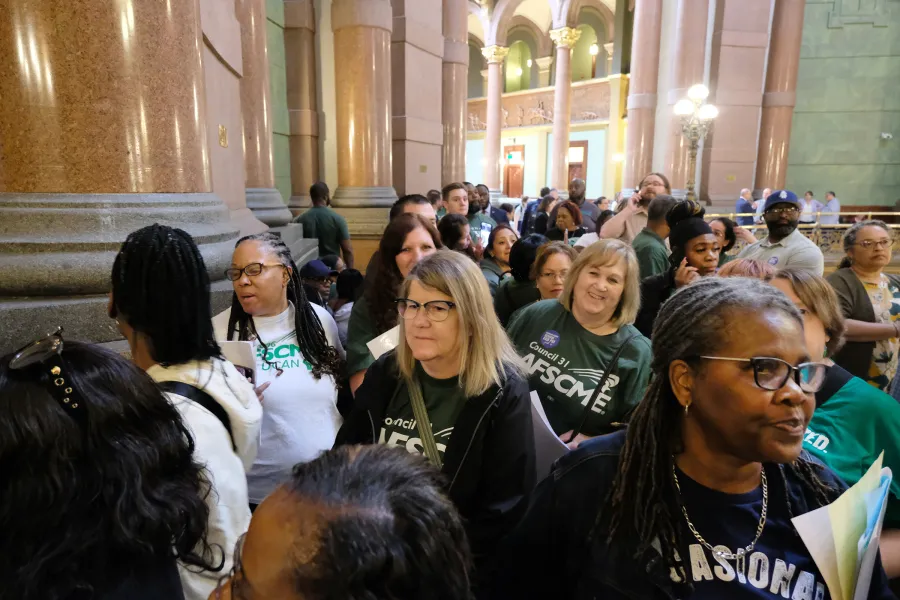We care, we count: DSPs set to fight for another wage increase

AFSCME members who care for individuals with developmental and intellectual disabilities in community settings are preparing to once again take their fight for fair pay to Springfield this spring.
During the campaign, direct support professionals (DSPs) organize and lobby lawmakers, making the case for why their work is important and why they deserve to be paid fairly for it.
In Illinois, more than 27,000 people with intellectual or developmental disabilities live in community residences and rely on DSPs to assist them with daily tasks, ranging from personal hygiene care to teaching essential life skills.
The agencies DSPs work for are almost entirely dependent on state funding, meaning that employee wages are tied to the amount of money the state legislature appropriates to those agencies.
Historically, Illinois was ranked near the bottom of states for spending on developmental disability services, but every year AFSCME pushes to increase funding for community disability services in the legislature. Over the past eight years, Illinois has increased funding for direct care staff wages by 78%, from $11.46 an hour in 2017 to $20.50 an hour in 2025.
Last year, AFSCME advocated for a $3 an hour increase for frontline personnel to meet the Guidehouse study recommendations commissioned by the state in 2018. In the end, the budget included a $1 hourly increase—not as high as it should be, but AFSCME secured legislative language ensuring that at least 75% of that funding should go toward DSP base wages.
“We’ve worked hard to get to a place where our wages are enough to take care of our families,” said Yurvette Simmons, a DSP at UCP-Center for Disability Services in Joliet and the president of AFSCME Local 3237.
With a projected $3 billion shortfall in the state budget for the coming year, intensive grassroots lobbying efforts will be key to securing any wage increase.
AFSCME is planning meetings with legislators in their districts and a DSP Lobby Day at the State Capitol on April 30, where DSPs will meet face-to-face with their lawmakers to educate them on why the state must increase funding for their wages.
“DSPs are necessary to this state,” Simmons said. “We’re just asking lawmakers to value us as such.”
